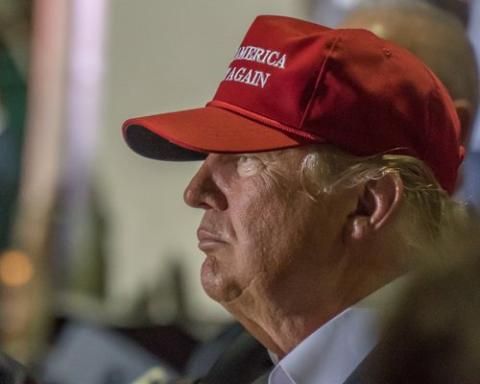It started with a speech on Sunday, in which Iranian president Hassan Rouhani sent a warning to the United States about pursuing a foreign policy hostile toward his government in Tehran, but to Donald Trump, Iranian president Rouhani was the one in need of a warning, and of course America's 21st century television game show host president had to make his implicit threat far more dramatic.
While addressing a gathering of Iranian diplomats Sunday, Rouhani issued this warning for the United States:
"Mr Trump, don’t play with the lion’s tail, this would only lead to regret...America should know that peace with Iran is the mother of all peace, and war with Iran is the mother of all wars...You are not in a position to incite the Iranian nation against Iran’s security and interests."
Western media outlets who reported on the warnings from Rouhani were all quick to note that as formulated, his words do leave open the possibility of peace between the government of Iran and that of the United States. Not to be outdone, Donald Trump took to his Twitter account to fire back at the Iranian president:
"To Iranian President Rouhani: NEVER, EVER THREATEN THE UNITED STATES AGAIN OR YOU WILL SUFFER CONSEQUENCES THE LIKES OF WHICH FEW THROUGHOUT HISTORY HAVE EVER SUFFERED BEFORE. WE ARE NO LONGER A COUNTRY THAT WILL STAND FOR YOUR DEMENTED WORDS OF VIOLENCE & DEATH. BE CAUTIOUS!"

His tweet seemed to follow the same pattern of foreign policy that Trump adopted with North Korea, making an extremely bold, and unusually unequivocal threat for the President of the United States. Then he said, in improvised remarks to the press that:
"North Korea best not make any more threats to the United States. They will be met with fire and fury like the world has never seen ... he has been very threatening beyond a normal state. They will be met with fire, fury and frankly power the likes of which this world has never seen before."
Though terribly risky for two nuclear powers half a world away from each other without a close understanding of the other country's culture and current state of mind, the war of words seemed to work out okay for the time being with North Korea, increasing respect for the resoluteness and power of each other country's leader, and resulting in a widely televised handshake at least.
So president Trump is rolling the dice again with Iran.
But the story begins before the Iranian president's warning Sunday, which was itself a reaction to what his government perceives as provocation from a U.S. government that broke its word and withdrew from a multi-lateral, international peace treaty between world powers and Iran, and has since followed up with toughened sanctions against Iranian exports, and a policy it has publicly acknowledged of active propaganda warfare against the Iranian government with the express purpose of fomenting internal rebellion.
And the story goes back even further than that, to over half a century of aggressive U.S. involvement in the Persian Gulf nation's affairs, starting with the CIA-instigated 1953 Iranian coup d'état, to overthrow a democratically elected prime minister and replace democracy in Iran with monarchical rule– America, the land of the free and the home of the brave, and her tax dollars spent to topple democratic governments in far-flung foreign countries and replace them with kings!
The question now as it should have been then, is what essential American interest (for the general welfare of the American people, not the enlargement of narrow special interests) is being served by the entanglements of the United States in the foreign politics of the Middle East? How does interfering in Iran's elections Make America Great Again?
In this question is the resounding question from George Washington's 1796 Farewell Address:
"The great rule of conduct for us in regard to foreign nations is in extending our commercial relations, to have with them as little political connection as possible. So far as we have already formed engagements, let them be fulfilled with perfect good faith. Here let us stop. Europe has a set of primary interests which to us have none; or a very remote relation. Hence she must be engaged in frequent controversies, the causes of which are essentially foreign to our concerns. Hence, therefore, it must be unwise in us to implicate ourselves by artificial ties in the ordinary vicissitudes of her politics, or the ordinary combinations and collisions of her friendships or enmities.Our detached and distant situation invites and enables us to pursue a different course. If we remain one people under an efficient government. the period is not far off when we may defy material injury from external annoyance; when we may take such an attitude as will cause the neutrality we may at any time resolve upon to be scrupulously respected; when belligerent nations, under the impossibility of making acquisitions upon us, will not lightly hazard the giving us provocation; when we may choose peace or war, as our interest, guided by justice, shall counsel.Why forego the advantages of so peculiar a situation? Why quit our own to stand upon foreign ground? Why, by interweaving our destiny with that of any part of Europe, entangle our peace and prosperity in the toils of European ambition, rivalship, interest, humor or caprice?"
Replace "Europe" with "the Middle East," and "European" with "Middle Eastern," and you will have a solid foundation for a rational and expedient U.S. foreign policy– and something vastly different from what the federal government has done.
